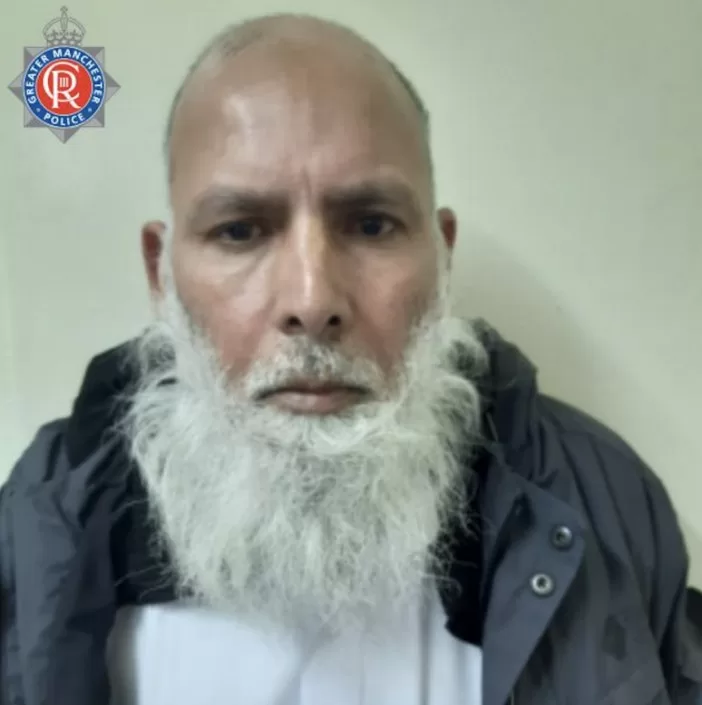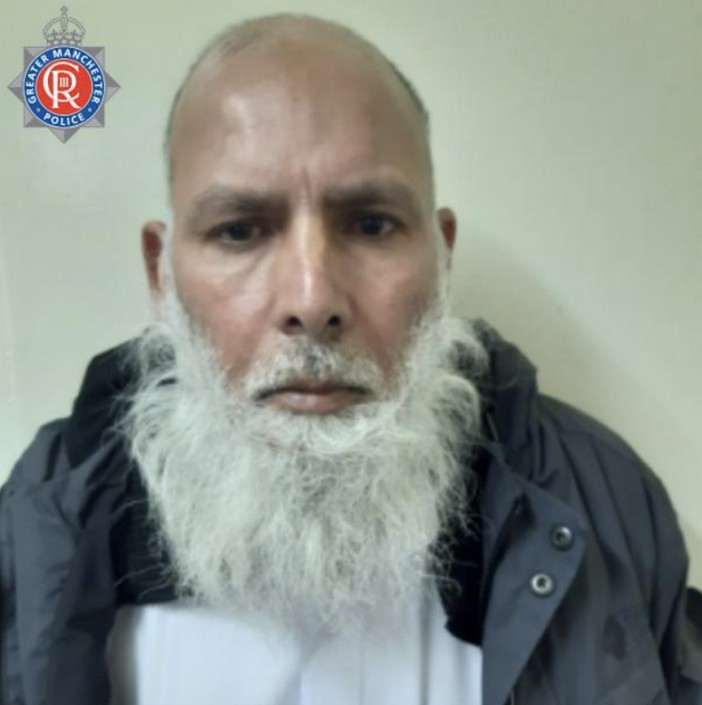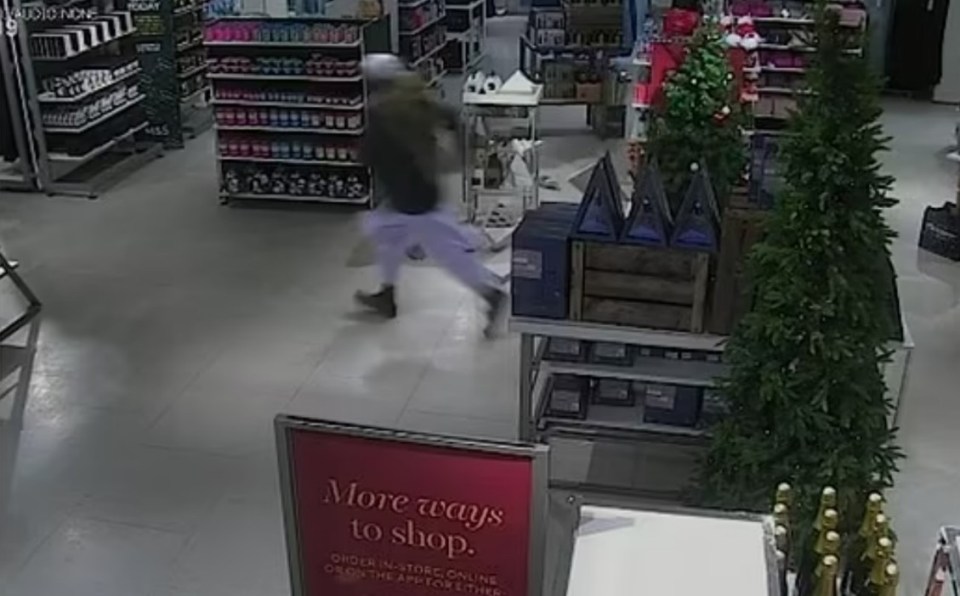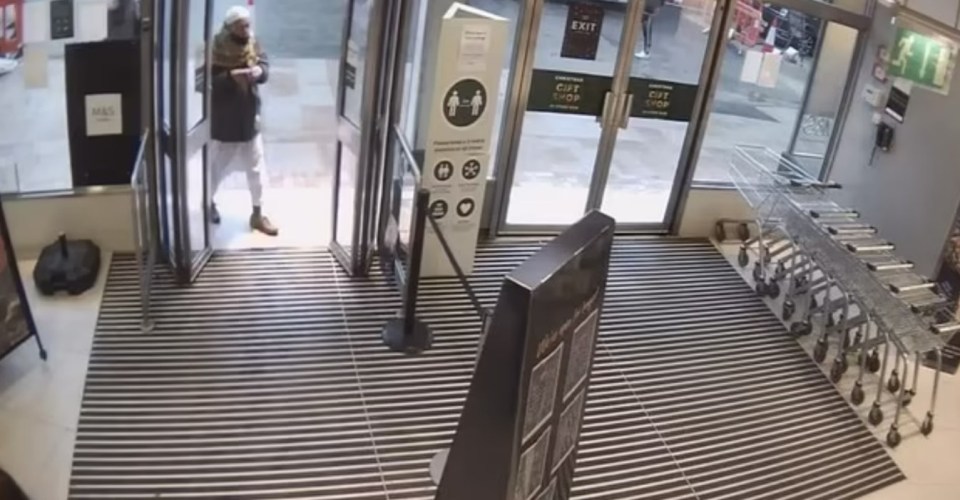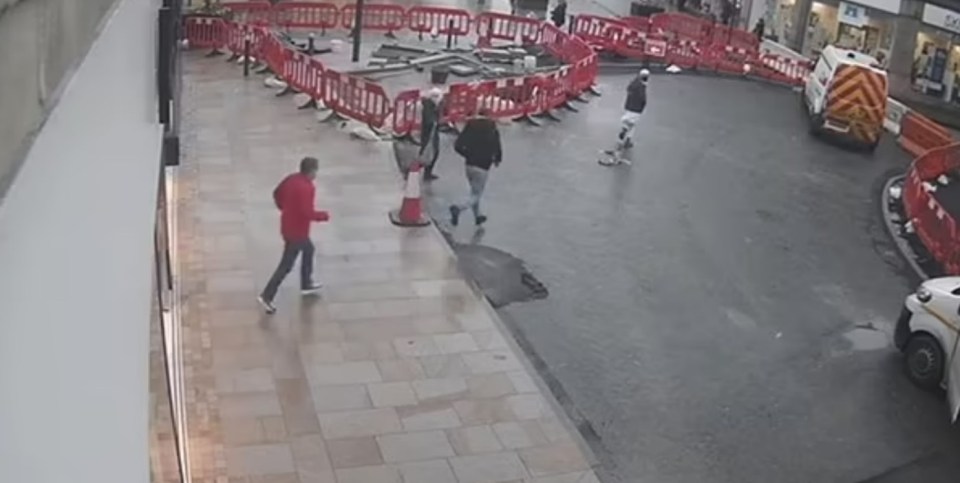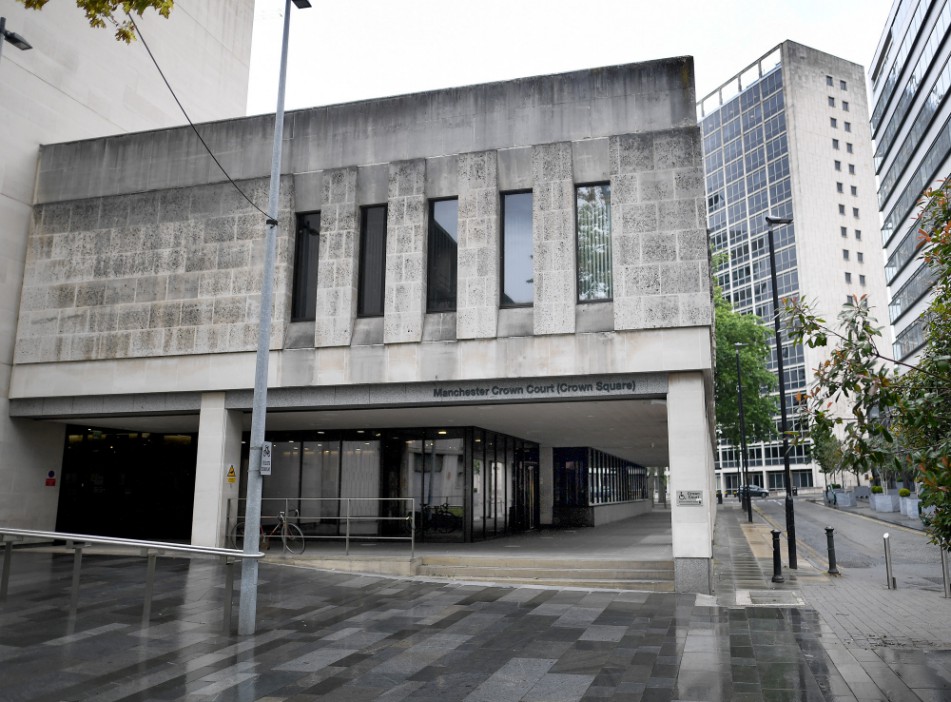THIS is the shocking moment a knifeman launched a vicious rampage in Marks & Spencer – stabbing a defenceless worker in the neck.
Munawar Hussain, 60, launched a brutal attack at the Burnley town centre branch in December 2020, stabbing a store manager in the neck before chasing her through the aisles like a scene from a horror film.
Not content with one victim, he then turned on a terrified customer, stabbing her in the arm and attempting to plunge the knife into her back as she lay helpless on the floor.
Thankfully, the blade snapped off in her handbag strap, sparing her life.
But the attacker wasn’t done.
He fled the scene, only to be heroically apprehended by a brave security guard and some gutsy bystanders who weren’t about to let him get away.
When cops nabbed him, they found a chilling note written in Urdu, which read: “O Israel, you are inflicting atrocities on Palestinians and Marks & Spencer helping you financially.”
Hussain was clearly on a delusional mission, believing his vile actions would strike a blow against a high street shop.
After being found guilty of attempted murder and wounding, this disturbed man even tried to kill again—this time, a nurse in the secure unit where he was being held.
Luckily, the nurse managed to fight him off, but the incident showed just how dangerous Hussain really is.
Today, Judge Nicholas Dean KC sentenced him to a hospital order.
This means he can only be released if the Secretary of State for Justice or the Mental Health Tribunal deem him safe—a day that can’t come soon enough for his victims.
Store manager Samantha Worthington, who was left with a collapsed lung and a neck wound, bravely shared how the attack has shattered her life.
Breaking down in court, she said: “It changed everything.”
She can no longer enjoy life’s simple pleasures without fear, living in constant panic that something terrible will happen again.
Customer Janet Dell, who was left with a damaged arm and haunting memories, said: “I don’t think I will ever forget the terror from that moment.”
The attack has left her so traumatised she can’t even set foot in Burnley town centre without her husband.
This wasn’t Hussain’s first stab at violence.
While in the secure unit at Guild Lodge, Preston, he viciously attacked a male nurse with a kitchen knife, claiming the nurse had “converted from Islam to Christianity” and deserved to die.
Psychiatrists who assessed Hussain concluded that he suffers from a severe mental disorder, but that’s cold comfort for his victims, who are left picking up the pieces of their shattered lives.
Judge Dean didn’t hold back, slamming Hussain for attacking innocent people who had absolutely nothing to do with his twisted beliefs.
The Judge said: “You harmed, in a serious way, people who on any basis were wholly innocent of any wrongdoing.” – making it clear that no delusional mission could ever justify his monstrous actions.
And in a rare gesture of gratitude, the judge awarded James Brayford, the heroic security guard who helped apprehend Hussain, £2,000 in compensation—a small token for his courage.
Chief Superintendent Sarah Kenwright of CTPNW said: “No one should go to their place of work or out shopping and fear for their lives.
“Sadly, this has been a reality for three people, who have undoubtedly had their lives changed, both physically and mentally, by Hussain’s actions.”
Hussain will now spend the foreseeable future in a secure hospital, where he can no longer pose a threat to the public.
But for his victims, the scars—both physical and emotional—will last a lifetime.
Section 37 of the Mental Health Act
When is Section 37 used?
A court can issue a “hospital order” under Section 37 of the Mental Health Act to send a person to a hospital for treatment instead of prison. This may happen if:
- The person has been convicted of a crime that could lead to imprisonment.
- The person has a mental disorder (such as mental illness or brain injury).
- The court believes hospital treatment is more appropriate than imprisonment.
A hospital order can also be made if the person is “unfit to plead” due to their mental condition. In some cases, if the person is considered a public risk, the court may impose additional restrictions under Section 37/41.
How do the courts use Section 37?
Courts require assessments by two doctors to confirm that the person needs hospital treatment. An approved clinician must find a hospital bed within 28 days, but the person might have to wait in prison if no bed is available. The court may order the person to a secure hospital if necessary.
How long does Section 37 last?
- Up to 6 months initially.
- Can be renewed for a further 6 months, then every 12 months thereafter if necessary.
